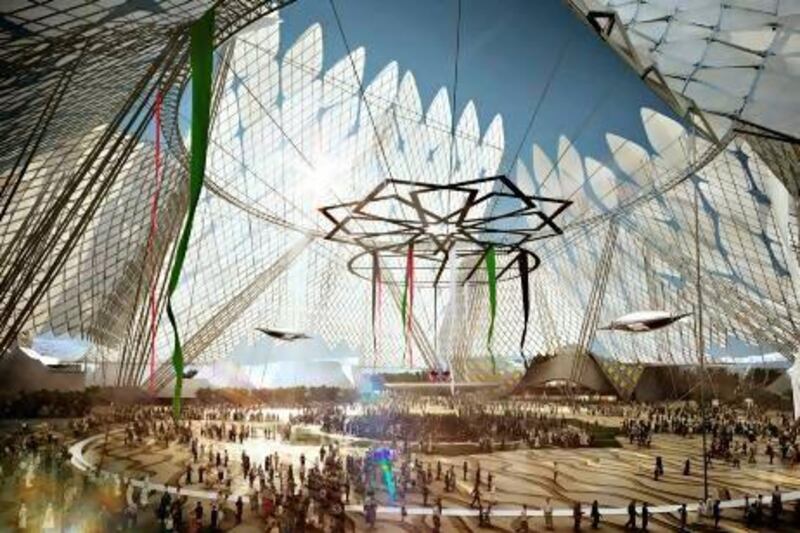DUBAI // The UAE’s bid to host Expo 2020 reaches a crucial stage today as a visiting inspection team begins its four-day tour of Dubai and evaluates the country’s plans.
Nine officials from the Bureau International des Expositions (BIE), which supervises the world fairs, arrived yesterday to carry out their inquiry mission.
They will assess the country’s ability to stage the event in Dubai and report back to the organisation.
Dubai is one of five cities bidding to host the 2020 world fair – the others are Ayutthaya in Thailand, Sao Paulo in Brazil, Yekaterinburg in Russia and Izmir in Turkey.
Mission assessments are being carried out in all five before a decision is made in November.
A plot of land next to Al Maktoum International Airport – known as the Dubai Trade Centre Jebel Ali site – has been set aside for the event, which the bid team estimates will attract 25 million visitors.
“We look forward to the mission’s discovery of our capabilities to not only host the event but to make it the best expo in the event’s 150-year history,” said Sheikh Ahmed bin Saeed Al Maktoum, chairman of the Higher Committee for Hosting the 2020 World Expo.
Reem Al Hashimy, Minister of State and managing director of the higher committee, said: “The inquiry mission represents a critical stage in our bid to host the World Expo 2020.
“We have worked diligently to develop a thorough and detailed plan, so I am confident that we can portray our capability to host such a mega-event.”
Details of the UAE’s plans – under the theme Connecting Minds, Creating the Future – are set out in a 600-page bid dossier that was submitted to the BIE in December. The visiting officials will determine whether the proposals are feasible.
During their visit, they are due to meet government and business leaders, tour a university and fly over the site by helicopter.
Sources said the bid team would be emphasising the quality of Dubai’s existing and planned infrastructure, its ability to host guest countries and visitors, and the ease of doing business here.
Other factors that will be stressed include the availability of staff and volunteers, the large number of languages spoken and the low crime rate.
Dubai’s role as a leading tourist destination and a regional leader in events, business and trade will also be highlighted.
The BIE secretary general, Vincente Gonzalez Loscertales, when asked about the UAE’s bid last November, said: “Dubai seems to have the necessary assets to be a good and interesting project, strongly linked to the expo’s values. Its theme is attractive for many countries.”
The project coordinator for the UAE pavilions at previous World Expos, Peter Vine, is one of the few people to have already seen the bid dossier, and he has read it in detail.
“It’s very comprehensive. It’s quite visionary, it tackles issues which are going to be relevant in 2020,” he said.
“It has built-in flexibility about precisely what issues it will address. By the way they’ve structured the bid, there is a process by which they will invite the participating countries to establish what are the key issues that need to be addressed in the world.
“They are not dictating precisely what the expo will address, they’re inviting countries to reach those conclusions.
“Then they’re creating a scheme whereby the most recognised issues are addressed in terms of trying to create solutions.
“And they’re creating a fund to help address those problems and implement the solutions.”
Mr Vine, who is working on plans for the UAE pavilion at Expo 2015 in Milan on behalf of the National Media Council and the Government, added: “The Dubai bid has created a very strong legacy, both in terms of what they are going to do with the site and the buildings and what they’re going to do about the issues that emerge as a result of the debates at the expo.
“So I think there will be a tangible and intangible legacy which will be very strong.”
[ csimpson@thenational.ae ]






